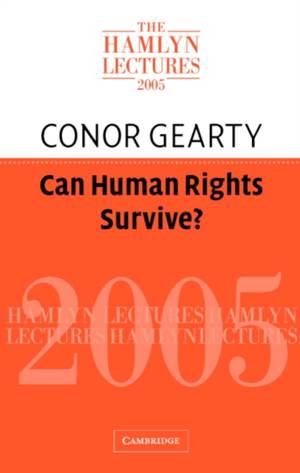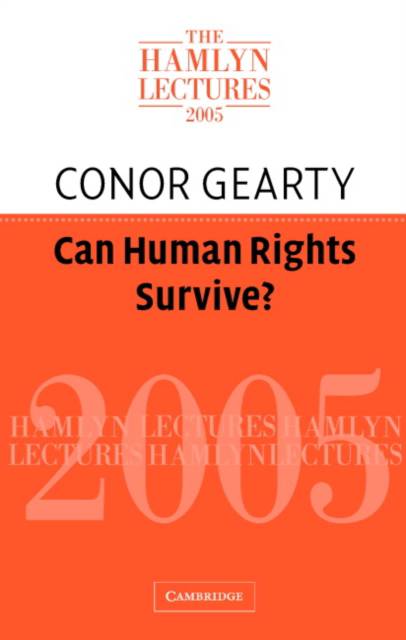
Je cadeautjes zeker op tijd in huis hebben voor de feestdagen? Kom langs in onze winkels en vind het perfecte geschenk!
- Afhalen na 1 uur in een winkel met voorraad
- Gratis thuislevering in België vanaf € 30
- Ruim aanbod met 7 miljoen producten
Je cadeautjes zeker op tijd in huis hebben voor de feestdagen? Kom langs in onze winkels en vind het perfecte geschenk!
- Afhalen na 1 uur in een winkel met voorraad
- Gratis thuislevering in België vanaf € 30
- Ruim aanbod met 7 miljoen producten
Zoeken
Omschrijving
In this set of three essays, originally presented as the 2005 Hamlyn Lectures, Conor Gearty considers whether human rights can survive the challenges of the war on terror, the revival of political religion, and the steady erosion of the world's natural resources. He also looks deeper than this to consider the fundamental question: How can we tell what human rights are? In his first essay, Gearty asks how the idea of human rights needs to be made to work in our age of relativism, uncertainty and anxiety. In the second, he assesses how the idea of human rights has coped with its incorporation in legal form in the UK Human Rights Act, arguing that the record is much better and more democratic than many human rights enthusiasts allow. In his final essay, Gearty confronts the challenges that may destroy the language of human rights for the generations that follow us.
Specificaties
Betrokkenen
- Auteur(s):
- Uitgeverij:
Inhoud
- Aantal bladzijden:
- 192
- Taal:
- Engels
- Reeks:
Eigenschappen
- Productcode (EAN):
- 9780521685528
- Verschijningsdatum:
- 18/05/2006
- Uitvoering:
- Paperback
- Formaat:
- Trade paperback (VS)
- Afmetingen:
- 162 mm x 217 mm
- Gewicht:
- 263 g

Alleen bij Standaard Boekhandel
+ 123 punten op je klantenkaart van Standaard Boekhandel
Beoordelingen
We publiceren alleen reviews die voldoen aan de voorwaarden voor reviews. Bekijk onze voorwaarden voor reviews.









